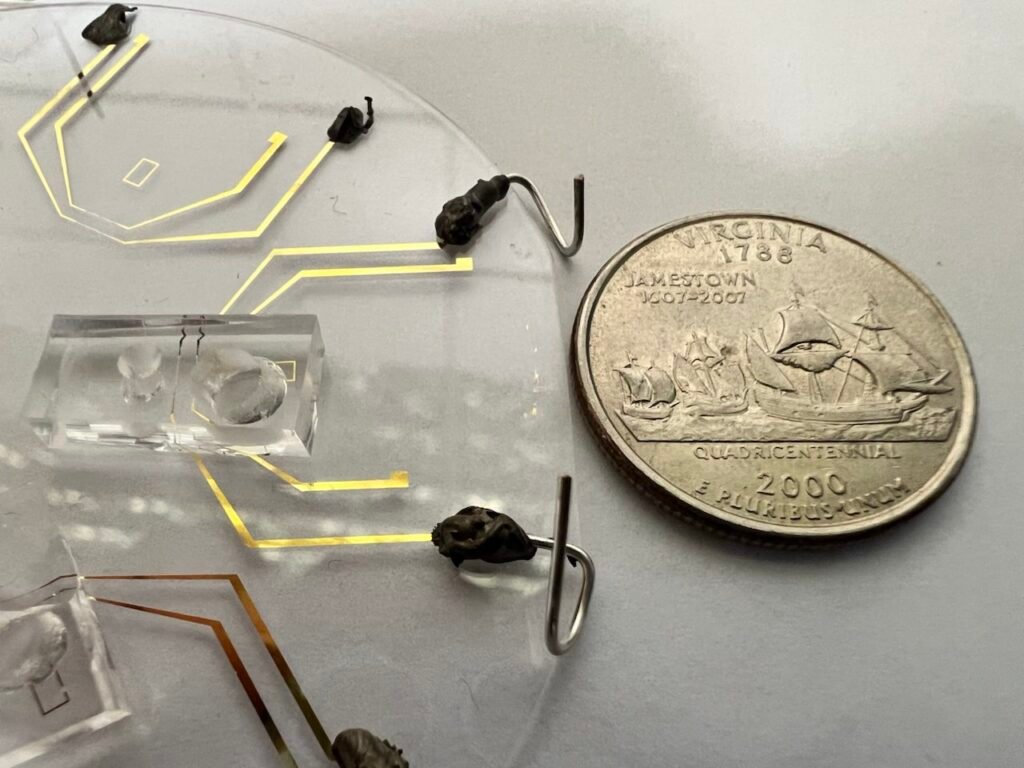Rutgers University engineers have developed a portable device capable of detecting rare genetic mutations from a single drop of blood in just 10 minutes. The device, which combines allele-specific polymerase chain reaction (ASPCR) with electrical impedance detection, was successfully tested on samples from patients with hereditary transthyretin amyloidosis, a genetic condition linked to heart failure. Unlike traditional genetic tests that take days or weeks, this new technology offers rapid, point-of-care mutation detection.
The device amplifies nucleic acid segments and analyzes DNA sequences using microfluidic chips, making it highly accurate and efficient. Researchers aim to expand its capabilities to detect multiple mutations simultaneously, potentially creating a comprehensive diagnostic tool for various genetic diseases. This innovation could significantly improve accessibility to genetic testing, particularly for underserved communities.
By bringing laboratory-grade genetic testing into doctors’ offices and homes, this device represents a major leap forward in personalized medicine. Future developments may enable broader screening applications, helping individuals identify genetic risks earlier and access timely treatments.
Article from Rutgers University: Engineers Develop Genetic Testing Device to Detect Rare Mutations
Abstract in Communications Engineering: Allele-specific electrical genotyping for diagnosis of transthyretin amyloidosis

